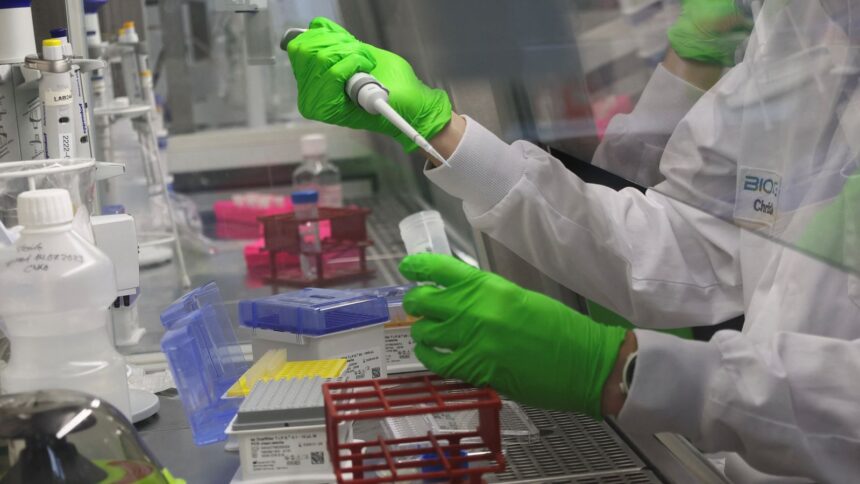Together with the popular cancer treatment Keytruda, Moderna and their partner Merck & Co. reported that their cancer vaccine increased survival and demonstrated long-term effectiveness.
After two and a half years, the melanoma patients who had received the cancer vaccine combination had an overall survival rate of 96%, compared to 90.2% with Keytruda alone, according to the 157-patient trial.
Roughly 75% of patients who received the combination of vaccinations achieved recurrence-free survival, compared to 55.6% who received Keytruda alone.
According to a survey published in December, people receiving the vaccination combination had a 49% lower risk of recurrence or death compared to those receiving Keytruda alone.
Merck and Moderna, who have been working together since 2016, are also carrying out a late-stage investigation on the combination of their vaccine and Keytruda.
Its partnership is one of many in the field that combines potent medications that target cancer by stimulating the immune system with mRNA vaccine technology, which provides instructions to cells so they may produce particular proteins for various individuals.
Co-director of the Melanoma Institute Australia, Professor Georgina Long, stated: “This has the potential to revolutionize cancer therapies worldwide.







